

Principals at each campus of the University of the West Indies (UWI) will now be responsible for projects aimed at income generation as the regional institution launches what it calls a “revenue revolution”.
UWI Vice-Chancellor, Sir Hilary Beckles, in a virtual press conference on Thursday (July 15), unveiled the institution’s 12-point plan to augment the second half of its ten-year strategic plan.
The announcement came after yesterday’s ‘fruitful’ executive management retreat, which focused on implementing an operational plan to address its financial sustainability.
Beckles told journalists that the UWI’s operational costs hover around US$300 million, which is 80 per cent funded through contributions by governments across the Caribbean.
In recent times, however, allocations have gradually shrunk, leaving the UWI in a bind to cover annual shortfalls between US$30 million and $40 million.
“We emerged out of a very productive retreat session in which we imagined a future, and we developed clear programmes, policies and projects to take us there,” he said.
In his presentation, Professor Beckles contended the coronavirus (COVID-19) pandemic was a “super accelerator” for the UWI, as the executive management team had plans preceding 2020.
“Indeed, many of the concepts that we are now actualising, many are already being rolled out and were formulated in 2017 through the 2019 period,”
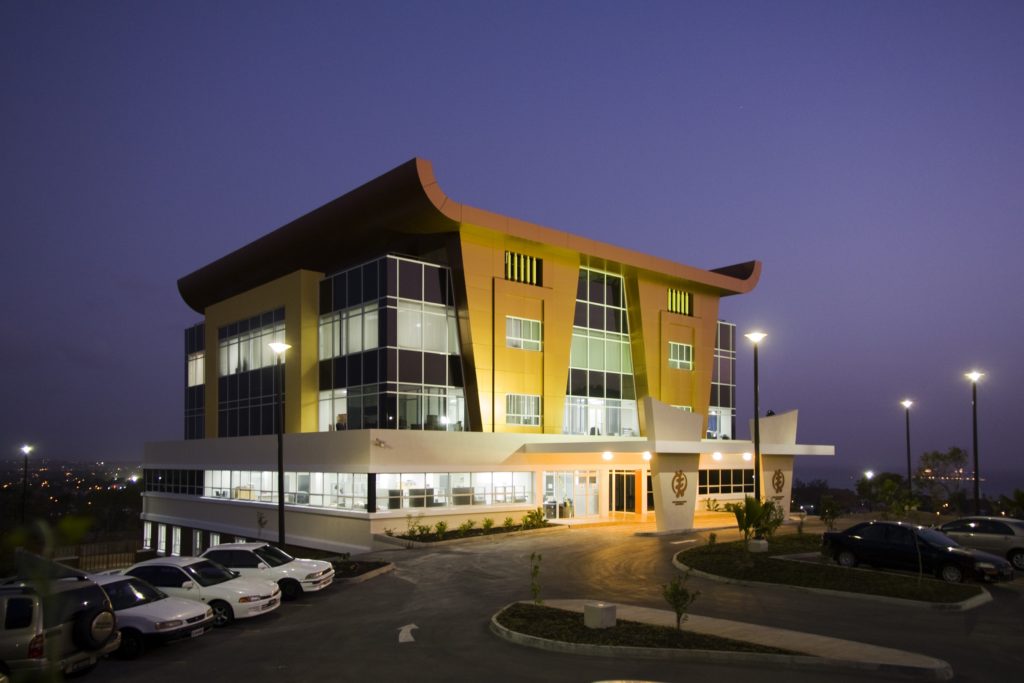
Vice-Chancellor Beckles noted that the prior five-year operational plan themed the “Reputation Revolution”, saw the university focused on rebuilding its brand, and radically upgrading its reputation regionally and globally as a pre-condition for the second phase.
“We could not go to the region and world for resources and development partnerships with our brand and reputation in question. We had to put our house in good order before going out into the very competitive higher education world,” Beckles explained.
“The results of this first phase were spectacular,” Sir Hilary said, adding, “The UWI is now ready for a fully-fledged revenue revolution.”
“The foundations have already been laid in the prior five years, but the blinkered singularity of purpose is now before us. This is not a knee-jerked COVID-19 response. It was on the cards in 2017 when the Triple A Strategic Plan was approved. In 2018 and 2019 my annual reports to the University Council spoke to the UWI’s corporate bonding and off we go on the revenue revolution”, Beckles noted.
CARICOM Chairman, Prime Minister Gaston Brown, invited by Vice-Chancellor Beckles invited to address Wednesday’s retreat from the perspective of contributing governments, embraced the university’s vision and strategy.

The CARICOM head noted that regional governments are solidly behind the university in leading financial reforms for greater autonomy. He endorsed the quest to radically alter the UWI’s financial circumstance.
Continuing, Beckles spoke about the notion that the UWI cannot continue to grow, innovate, and prosper solely within its domestic financial base. He recognised the devastation of the regional economy by COVID-19—leading to governments’ inabilities to fund it at the previously approved level.
“There has been an explosion of innovation within UWI during the last five years, and we are capturing this the current strategy”, the UWI Vice-Chancellor noted.
This will be reflected in an upsurge in productivity, cost reduction, and the greater application of technologies to the new business culture.
The Vice-Chancellor noted that the current funding model, characterised by large government arrears and subsequent impairment and write-offs, produces a budgetary gap that must now be closed. UWI has taken on the task of closing this budgetary gap through its new entrepreneurial projects.
“Despite the fact that the deficit drivers are outside of management’s control, we are owning them, and taking on the project of closing the gap by generating cash to end the 30-year-old era of deficit financing and moving to balance budgeting within two years,” he further stated.
Operation Revenue Revolution 75+ (Operation RR75+), which sees its first target as the 75th anniversary of the university in 2023 and looking beyond, seeks to create an adjusted funding model.
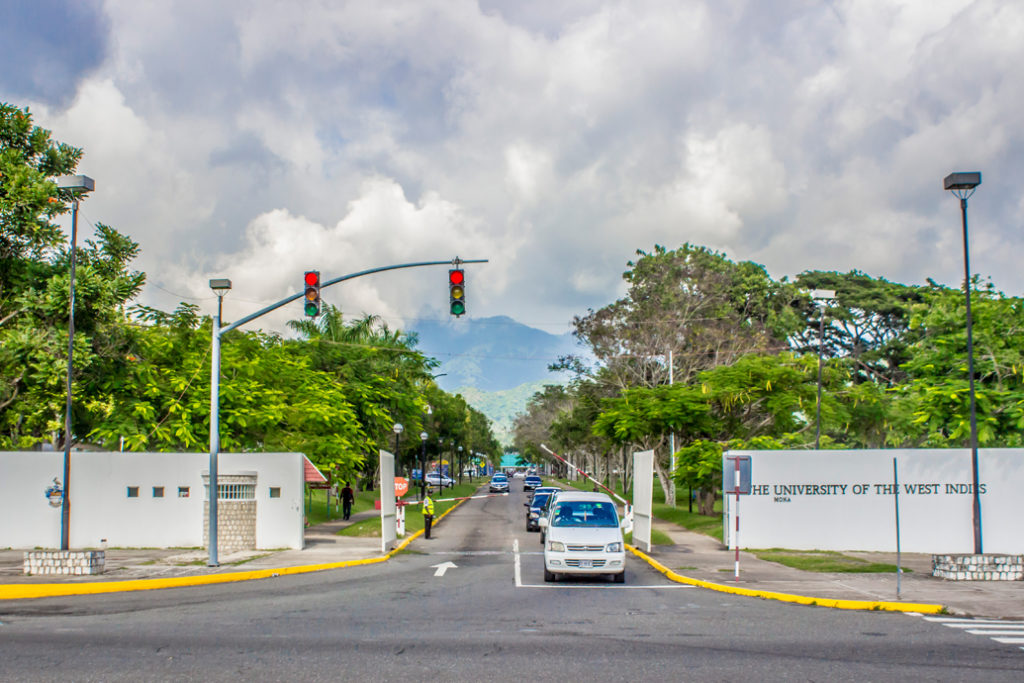
Caribbean governments would still provide 50 per cent of the UWI’s revenue, while the remaining half comes from the university’s entrepreneurial actions including 20 per cent in regional student fees; 10 per cent in international student fees; 10 per cent in business activity; five per cent in private sector investments; and five per cent from its endowment sector (including alumni).
See more in the 12-point plan below:
- The university will see significant activity on both sides of the balance sheet, beginning with a 10 per cent expenditure reduction per year, for two years.
- On the revenue side, UWI will implement its 10-point financial plan. In this context, the following projects have already been initiated.
- Each campus will develop bankable projects for income generation, and principals will be held accountable for their capacity to inject financial outcomes into campus budgets.
- UWI Enterprise will be launched as a holding company designed to promote commercial activity across the campuses with ‘spin off’ and incubators in all faculties.
- UWI intends to take its business enterprises to regional capital markets through the offer of UWI Business Bonds and related financial instruments.
- The commercialisation of UWI’s vast intellectual property will be initiated as soon as its IP policy is approved.
- The projected launch in 2022 of the UWI Global Campus, building on the footprint of the existing Open Campus, will drive international students into the UWI system. This will be a self-financing, online ‘for-profit campus’. The Global campus is expected to deeply impact the traditional operations and financial trajectory of the University.
- Intensification of entry into new regional markets, especially in areas of micro-credentialing offerings and commercial-oriented academic services.
- A new drive into the endowment market, particularly to secure resources for large scale regional research, and scholarships for historically marginalised students.
- There will be a revamping of the regional and global alumni giving operations.
- New global partnerships will be placed on a sound commercial footing in order to promote a value-added business culture within faculties and research institutes.
- Conversations will be intensified with governments and the private sector in order to create a university-owned land bank, and a private sector investment fund for institutional and infrastructural development.
These strategies are already in action, some more advanced than others, and have since impacted the university’s governance model while changing its business culture.
The grand objective, according to Beckles, is to enhance the financial strength of the university, stabilise the contributions of governments, reduce costs to regional students, and transform overall governance in the best interest of the public academic institution.
“The UWI will emerge as a hybrid academy; maintaining its identity and brand as the region’s premier first-class ‘public good’ university, while containing and driven by a robust commercial, income-generating operation dedicated to creating a sustainable self-financing enterprise,” the UWI Vice-Chancellor asserted.
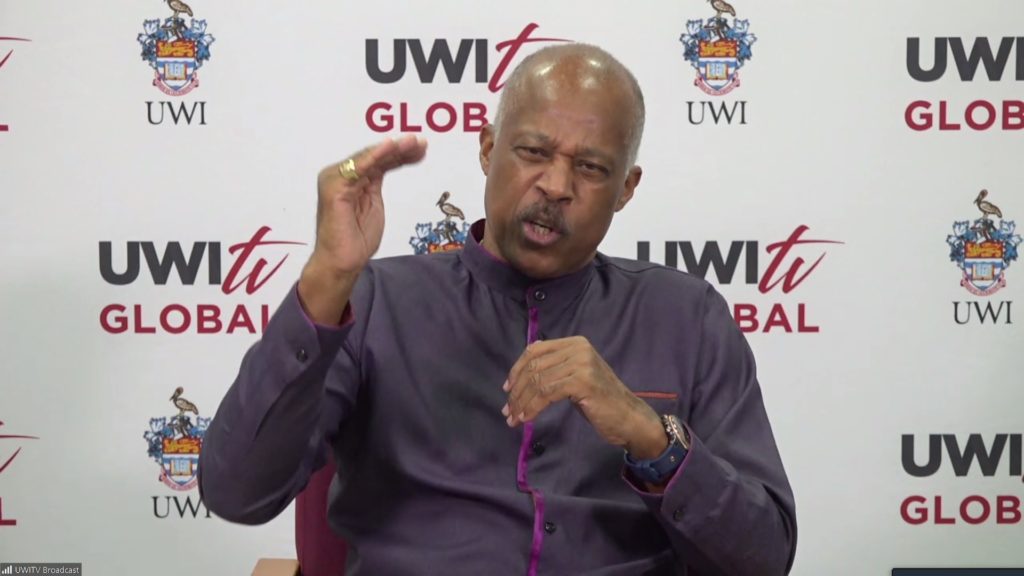
“Operation RR75+ is, therefore, the tipping point in the 21st-century journey and evolution of the UWI. It’s a program of systemic change and transformation. It’s the final phase of the change culture long anticipated. It’s a partnership model in which academic leadership will partner progressively with owners of private capital with development goodwill, and with the global community with a consciousness of commitment to the advancement of the Caribbean. The ‘for profit’ element will not engage predator private wealth owners, but will seek out and work with ethical development investors and those committed to Caribbean nation-building,” he said.
“The UWI vision,” Beckles contended, assuring that at no point would tuition fees be increased from the 20 per cent stipulated, “is to be an ethical, excellent, entrepreneurial global academy, rooted in the Caribbean.”




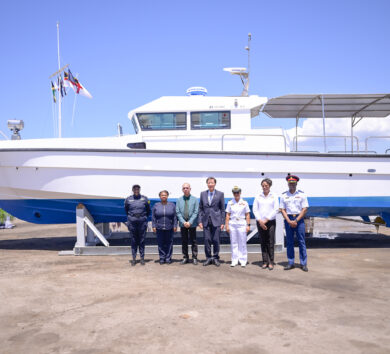

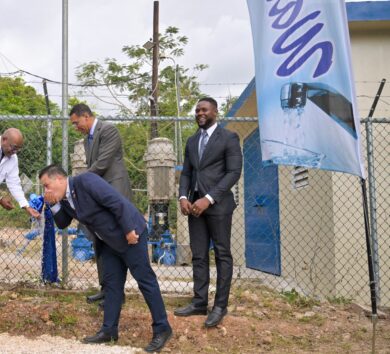
Comments